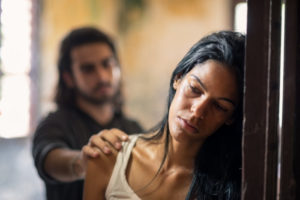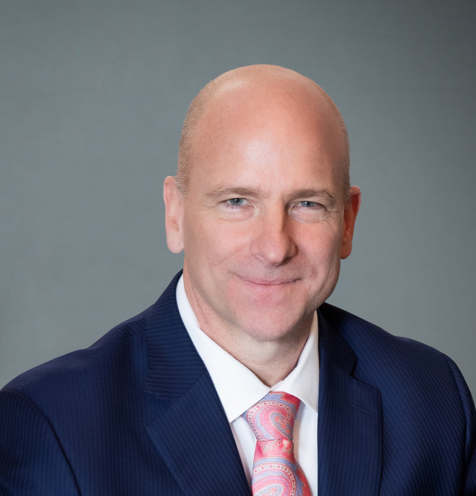How To Spot the Signs of Domestic Violence

Domestic abuse is a pattern of behaviors used by one partner to maintain power and control over another partner in an intimate relationship, according to the National Domestic Violence Hotline.
Most incidents of domestic abuse take place behind closed doors. However, if you know what to look for, you may see a pattern of behavior emerge in public. Abusive partners tend to grow bolder over time and make less effort to hide their behavior, while victims show signs of the abuse they are suffering. Domestic abuse is also known as relationship abuse, or intimate partner violence (IPV).
The Raleigh domestic violence attorneys of Charles R. Ullman & Associates help victims of domestic violence and abuse take the necessary steps to be safe and protect their family. Our compassionate attorneys can help you understand your legal rights to obtain a protective order and leave an abusive relationship. Our family law firm has assisted numerous Wake County residents who were in abusive and violent relationships move forward with their lives. It is important to recognize the signs that a relationship may involve abuse.
What Are the Different Types of Domestic Abuse?
We typically think of domestic abuse as occurring between couples. But the definition of abuse contained in Chapter 50B of the North Carolina General Statutes is broader. It encompasses domestic violence between two parties who share a personal relationship.
A personal relationship includes:
- Current or former spouses
- Persons of the opposite sex who live together or have lived together
- Parents and children
- Grandparents and grandchildren
- Any person acting as a parent to a minor child
- Persons who have a child in common
- Current or former household members
- Persons of the opposite sex who are in or have been in a dating relationship.
While domestic abuse can happen to people of any age, young women ages 18 to 24 are at the greatest risk of being victimized by intimate partner violence.
Some may be reluctant to leave intimate relationships or marriages, even after being repeatedly demeaned, threatened or suffering physical violence and injuries. While some young people may still have a limited understanding of the differences between healthy and unhealthy intimate behaviors. And some victims may feel confused or trapped. It is important to remember that a loving relationship does not entail being demeaned or abused physically or emotionally. No one deserves to be abused. Learn more here about types of domestic abuse.
Professionals typically cite six categories of domestic abuse:
- Physical Abuse: any form of physical contact intended to cause physical injury – even a very minor injury.
- Sexual Abuse: any form of unwanted sexual contact or sexual conduct, including non-consensual fondling or intercourse, forced use or disuse of contraception, forced abortion or accusations of infidelity.
- Psychological Abuse: any ongoing actions meant to instill fear, control or intimidation.
- Emotional Abuse: efforts to destroy a victim’s self-worth.
- Financial or Economic Abuse: an extension of the abuser’s power and control into areas involving money or the ability to have a job and make money.
- Digital Abuse: the use of technologies such as texting and social networking to bully, harass, stalk or intimidate a partner.
Common Signs of Domestic Violence
In a healthy relationship, each person is responsive to the other’s needs, looks out for their best interests, and shows interest in what the other says and does.
In an abusive relationship, one partner acts to gain power over their partner through abusive tactics to make the partner feel less valuable. An abusive spouse may demean or insult the other person in public situations or post unflattering or compromising comments or photos on social media.
Multiple groups that advocate for women and/or against domestic violence offer examples of traits that serve as common signs of domestic abuse.
An abusive partner or family member might:
- Regularly insult and demean the other person, or say they never do anything right
- Prevent the other individual from making decisions, or denigrate decisions they have made
- Threaten the other person or their children, family or pets
- Show extreme jealousy of the other’s friends and time spent away from him or her
- Exhibit extreme mood swings and erupt in angry outbursts without warning
- Make others feel as if they are walking on eggshells to avoid trigging an outburst
- Refuse to give the other person money for expenses and try to control every penny spent in the household
- Abandon the other in unfamiliar places
- Post unflattering images or unkind words about the other person on social media
- Pressure the other person to use drugs or alcohol
- Insist the other person dress in an overtly sexual manner
- Speak openly of sexual acts the other will or has performed.
A person being abused might:
- Constantly check in with their partner / abuser
- Receive frequent phone calls from his or her partner that leave them upset
- Readily agree with everything their partner says and does
- Be overly worried about what pleases their partner
- Make excuses for injuries such as black eyes
- Wear clothes that don’t fit the season, like long sleeves in summer to cover bruises
- Never have money or credit cards on hand
- Have to get home instead of joining the group after work or after classes
- Rarely go out in public without their partner
- Exhibit major personality changes such as withdrawing or exhibiting low self-esteem.
Raleigh Help for Abuse/Violence Victims
If you recognize a family member or friend in a potentially abusive situation, you might speak to the person about protecting herself or himself from further domestic abuse. If you believe someone is in immediate danger of physical harm, you should phone 911 to summon local law enforcement authorities.
It is critical for abuse victims who remain with their partner to create a plan of action in case a potentially violent situation arises.
Taking out a protective order (also known as a “restraining order”) is a step the victim may take for protection from their abuser. Our compassionate family law attorneys can help victims of domestic abuse seek a restraining order.
North Carolina courts issue two types of protective orders:
- Ex parte or temporary protective order (TPO). This is protection that may be issued immediately in an emergency, or within 72 hours after a request. Temporary protective orders can be issued by a family law judge without the abuser being present at the court hearing.
- 50B domestic violence protective order (DVPO). A full hearing is required to obtain this type of protective order, but it is good for much longer – often up to one year.
If the subject of a protective order violates its restrictions, he or she can be arrested and face criminal penalties. To obtain either type of protective order, you must demonstrate your need for protection to the satisfaction of the court. An experienced domestic violence lawyer can review your domestic situation and identify the types of evidence showing the need for the order.
The Raleigh domestic violence attorneys of Charles R. Ullman & Associates can help a victim of abuse obtain additional help through various resources available in the community. This may include refuge at a local women’s shelter or crisis center, assistance from counselors and mental health professionals, and working with law enforcement to protect the victim’s rights and/or enforce laws pertaining to assault and battery or other crimes.
An attorney from our Raleigh office can assist an abuse victim with such legal issues as beginning the separation and divorce process, child custody and child support, and seeking alimony payments, among others.
Contact Our Raleigh Domestic Abuse Law Firm Today
If you are a domestic violence victim – or you know someone suffering or at risk of domestic abuse – it is important for you to know that the law is on your side and help is available. Regardless of the circumstances, you do not have to endure the situation if you are being abused. The compassionate attorneys at Charles R. Ullman & Associates are here for you. From our offices in Raleigh, we help domestic violence victims throughout Wake County move toward a brighter day by providing legal services and putting them in touch with other caring professionals.
Contact an experienced domestic violence lawyer at Charles R. Ullman & Associates for a confidential consultation today. Please contact us online or call us toll-free for a prompt response.
Testimonial
I volunteer with Granville County’s domestic violence/sexual assault Non-profit, FAMILIES LIVING VIOLENCE FREE, and we have had the good fortune, recently, to be associated with the work that Charles Ullman is doing in the area of DV. One of his passions, demonstrated in the compassionate outreach he championed during April’s focus on domestic violence and sexual assault, made us a beneficiary of his generosity and philanthropic heart. Charles helped partner various DV agencies with fraternities across some of North Carolina’s campuses, and we were truly blessed in being paired with a team of Duke’s students comprised primarily of members of the Phi Delta Theta and Sigma Alpha Epsilon Fraternities, through Charles’ Fraternities4Family initiative. Charles was instrumental in fundraising for this cause which assisted us in helping additional victims of domestic violence and sexual abuse. We are profoundly appreciative to Mr. Ullman and to the young men who helped to bring a greater awareness of this crime to Granville County students, especially, and provided them with knowledge on how to help prevent it.
Review by: Pam Hester
Reviewing: Domestic Violence Legal Services
Date published:05/05/2014
Rating: ★★★★★5 / 5 stars










